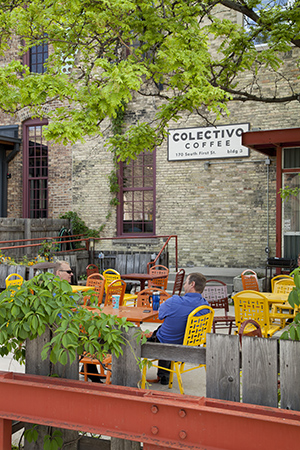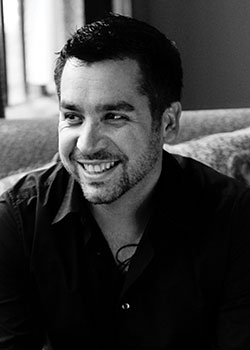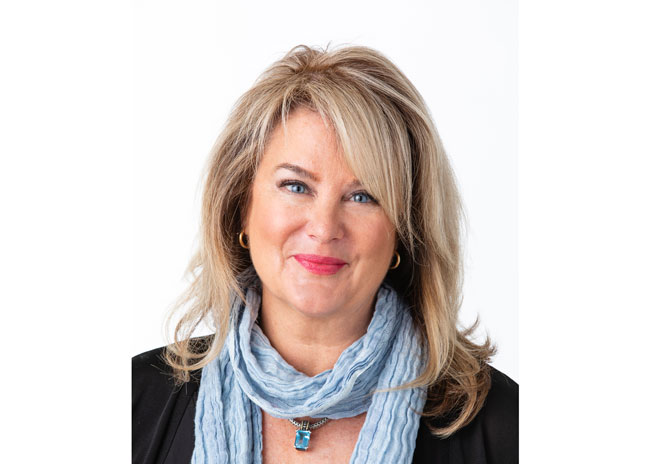Based in Milwaukee, Wis., Colectivo Coffee started 25 years ago as a small coffee roaster operating out of a warehouse basement. In the time since, it has evolved into a chain with 17 specialty coffee shops as well as a bakery making the pastries sold in these stores.
The company recently made its first move out of Wisconsin by opening a store in Chicago’s Lincoln Park neighborhood. Scott Schwebel, Colectivo’s vice president of brand marketing and retail, recently spoke with rd+d about the types of locations the company looks for and Colectivo’s approach to design.
How did you go from coffee roaster to coffee chain?
We’re almost 25 years old. We started predominantly just as a coffee roaster. We opened our first cafe a handful of years later in the late ’90s because there was a certain type of experience that we felt was missing in terms of storytelling for our brand.
What’s the story you’re trying to tell?
We’ve always believed that art inspires. We’ve used artfulness as a way to differentiate our brand. A lot of this stuff has become sort of passé, but we started doing it in the late ’90s. Our cafes as all truly handmade. We literally make everything. We make the chairs in all our cafes. We make the tables, the light fixtures, all the cabinets. There isn’t anything in our cafes that hasn’t been touched with a sense of thoughtfulness or artistic hand touch it.
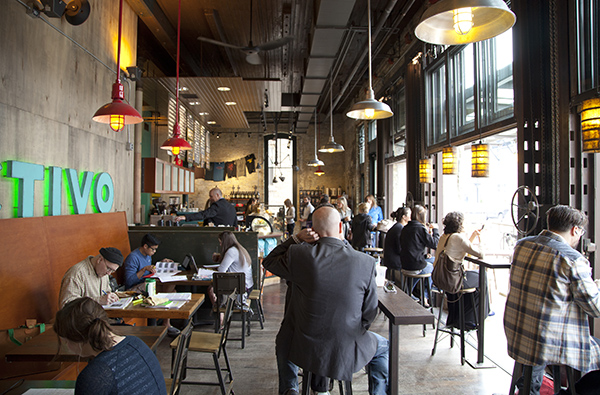
Our customers, even though most might not be able to articulate it, can feel it, and we believe that they reward us for it. There’s constantly something new that you’re noticing, even if you’ve been in 50 times, there’s some subtle feature you might notice. We believe it builds a truly unique retail experience.
Custom can have a lot of different looks. What’s the look and feel Colectivo is trying to achieve?
We use common materials in uncommon ways. We use plywood a lot. We think it’s a remarkable material. All of our materials are sturdy and durable. There’s a thickness to the environment, kind of a bulletproof industrial fabrication.
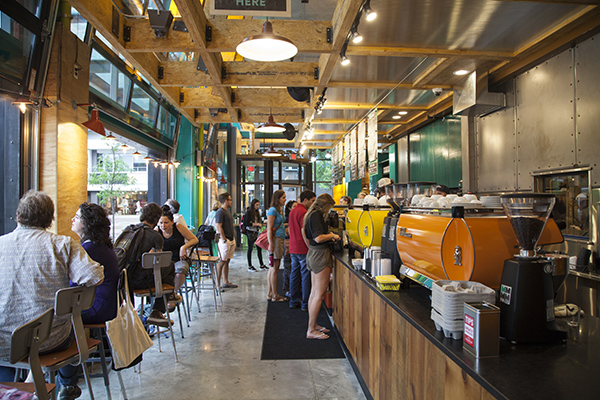
Our bakery cases all have a very distinct look to them in terms of how they’re built. We’re a very colorful, funky brand, so you’ll walk in to each one of our cafes and see that truly no two are alike. You can tell they’re us but none of them will look the same. There’s also a certain level of unfinished-finishedness to all of our fabrication. That can be in how a bolt is welded or in the material that’s used, like painted canvas with layers of transparent paint.
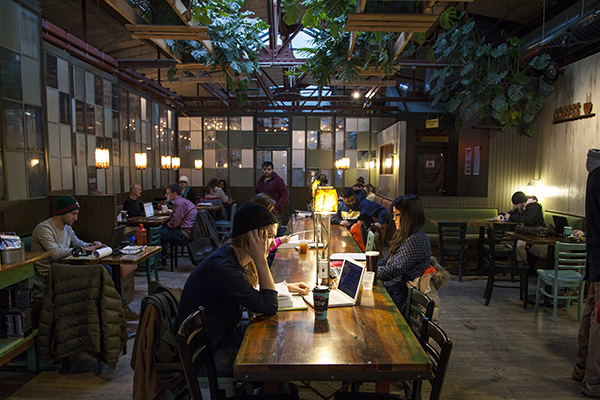
What do you look for in a space?
I joke that we generally look for things that are problems. We like old. Old comes with a lot of damage in terms of construction and reinventing something, but we love reinventing buildings.
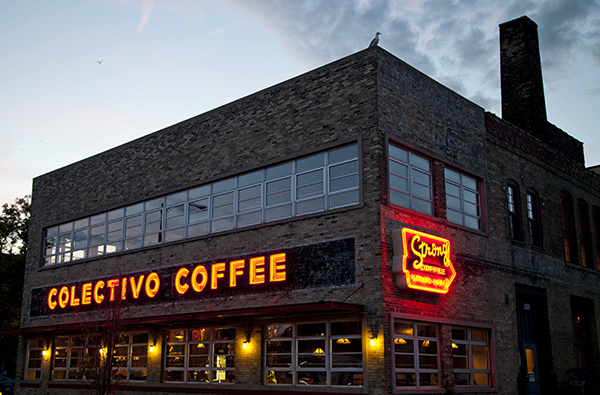
A lot of our cafes have gone into buildings where we’ve completely had to reinvent the use of, or on a corner where we saw the opportunity. We’re unlike a lot of retailers in that we don’t use a lot of data and analytics. We stand on a corner and go, do we feel it? Do we not? Is there a little tingle? Can we see the possibility of what’s being done here? That generally brings us to buildings that a lot of people would look off. We put a significant amount of time, money and energy into them, but we build for the duration. We’re attracted to old, funky, hard to fit, unusual spaces.
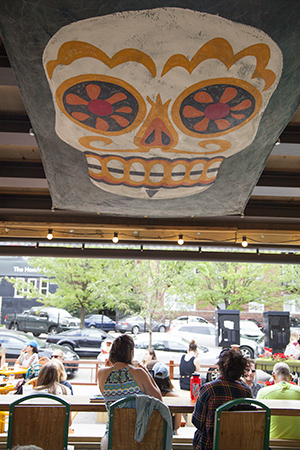
Your locations also tend to have outdoor sections.
Yes. Our brand has always blurred the lines between indoor and outdoor. We’ve always wanted guests to fall into our cafes. Our Chicago location in Lincoln Park was a tiny little storefront, only about 1,200 square feet. But we saw this tremendous outdoor possibility. We have this fantastic transitional space with some overhang and offer some indoor/outdoor activity. We build patios or indoor/outdoor expressions unlike anybody for sure in our category. We’ve been a brand that’s always capitalized on its ability to open up to the street. We look for that and try to do that in every one of our cafes.
